Hotel Muehlebach in Kansas City, Missouri—the White House of the mid-west
In September of 1945, Mrs. Bernice S. (née Shonely) Howard (b. 30 Aug 1906, Hiawatha, KS; d. 2 Mar 1999, Racine, WI) was traveling through Kansas City, Missouri, where she stayed at the Hotel Muehlebach a few nights in between visits to her sisters, a Mrs. Marjorie (née Shonely) Carlsen, then of Kansas City, and Ms. Cecilia Shonely of nearby Leavenworth, Kansas. She wrote the following message home to her husband on an Hotel tourist postcard. The typewritten postcard was addressed to her husband, George Marion Howard (b. 10 Jul 1889, Milwaukee, WI; d. 5 Aug 1963, Wichita Falls, TX).
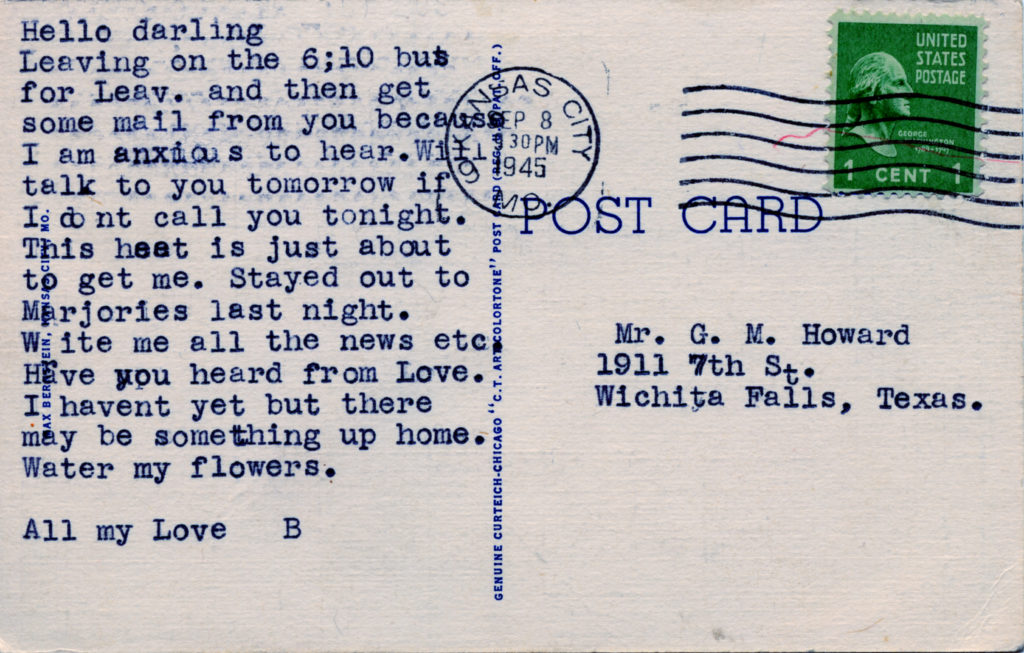
Love refers to the Howard’s daughter, Lovelia Millicent Howard (b. 6 Apr 1923, Leavenworth, KS; d. 8 Aug 1998, Racine, WI). Between the time of this postcard and the spring of 1949 Love found herself in the San Francisco Bay area of California. She met and fell in love with Lee Jerome Murray (b. 6 Oct 1920, Minneapolis, MN; d. 30 May 2006, Racine, WI), a recently returned Army WWII veteran who had served in the Aleutian Islands during WWII. The two were wed in Walnut Grove, CA, on May 15, 1949, where they lived for some period. Love was an artist and children’s book illustrator, while Lee was later employed by the Keystone Steel & Wire Company. They eventually settled in Racine, WI for the rest of their lives.
The Hotel Muehlebach is one of the more famous Kansas City hotels and one of the few early hotels to survive into the modern era, though today it is part of the Marriott hotel group. It had been visited by every US president from Teddy Roosevelt up to Ronald Reagan. It even served as the temporary White House for Pres. Harry Truman during the months at a time he would spend in his hometown. I enjoy finding vintage postcards of this landmark KC hotel.
This next postcard, written a mere six years after the above, mentions the Muehlebach indirectly but emphasizes its role as Truman’s temporary home and office. Featured on the front is a mid-century view of Kansas City’s Armour Boulevard, seen looking east from Gillham Road.
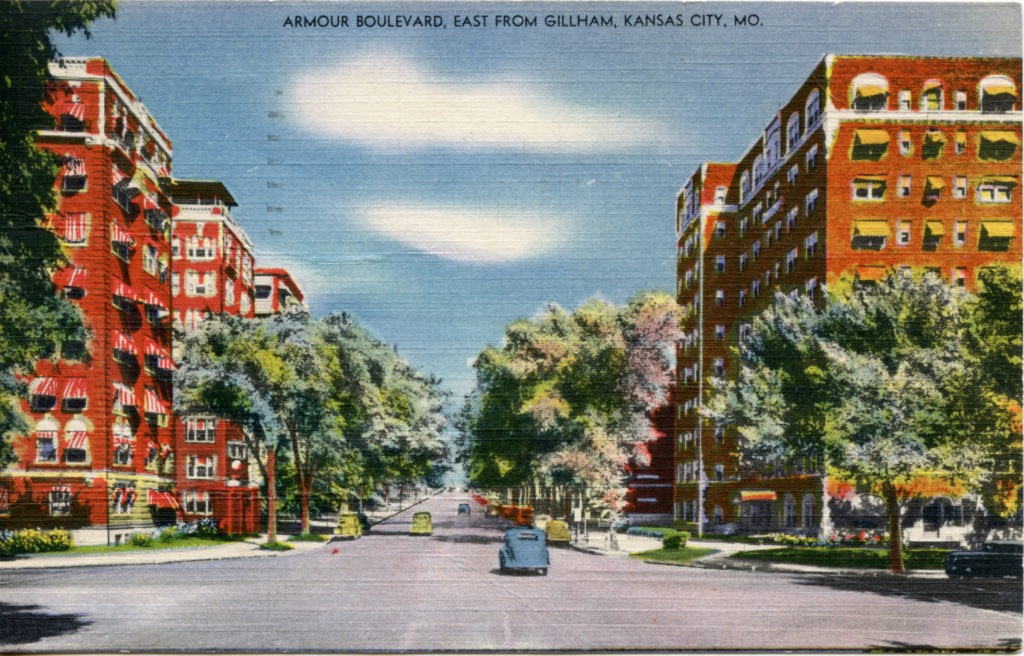
The reverse of this postcard contains a message written by Carrie V. (née Mort) and Keller Newton Morin, of Hagerstown, Maryland, on 5 September 1951.
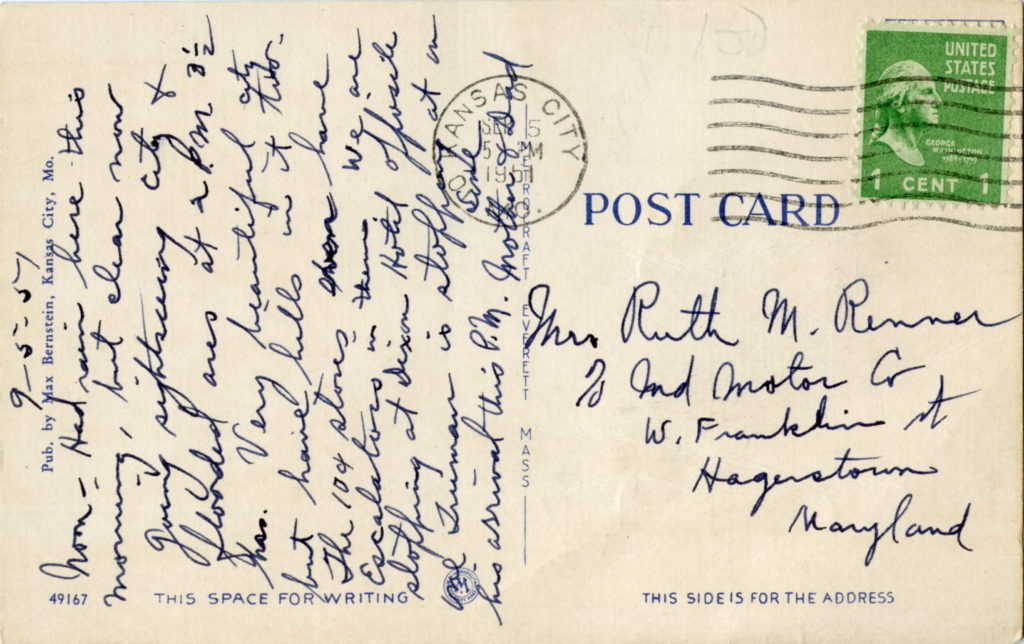
9-5-51
[] – Had rain here this morning, but clear now going sightseeing city & flooded areas at 2 P.M., 3-1/2 hours. Very beautiful city but have hills in it [too]. The 10-cent stores here have escalators in them. We are stopping at the Dixon Hotel opposite one Truman is stopping at in his arrival this P.M.
Mother & Dad”
Keller Morin was a railroad engineer and the reason for their visit was likely the tour of the flooded areas mentioned in the postcard.
The flood was a massive overrun of the Big Blue River above Manhattan, KS, that swept through the towns of Topeka and Lawrence, KS, and that of the Kansas River in Kansas City, on Friday, 13 July 1951. Communication lines and railroad tracks were wiped out in the path of the flooded areas.
The destruction of TWA’s overhaul base at the Fairfax Airport lead to the immediate establishment of their new overhaul base at an airport constructed in Platte County, Missouri—Kansas City Industrial (KCI) airport, which would would become KC International just over a decade later.
The hotel they stopped at was the Dixon Hotel, at the southeast corner of 12th and Baltimore. Across the street, at the southwest corner, was the infamous Hotel Muehlebach. As mentioned previously, during Truman’s years as president, he occupied the presidential suite of the Muehlebach whenever he was in Kansas City.
On 4 September 1951 Truman gave the very first ever transcontinental television broadcast, a speech he gave opening a conference in San Francisco where Truman, and thus the United States, accepted a treaty that officially ended America’s post-World War II occupation of Japan. The Multilateral Treaty of Peace with Japan was ratified by the U.S. Congress on March 20, 1952.
Truman left San Francisco and arrived in Kansas City (alluded to in the postcard) on the evening of September 5th. He gave a speech the following day at the Dedication of the Organized Reserve Corps Armory. In the speech, he praised the civilian background and voluntary nature of our reserve armies.
[Public Papers of the Presidents of the United States, Harry S. Truman, Containing the Public Messages, Speeches, and Statements of the President January 1 to December 31, 1951, p. 218]
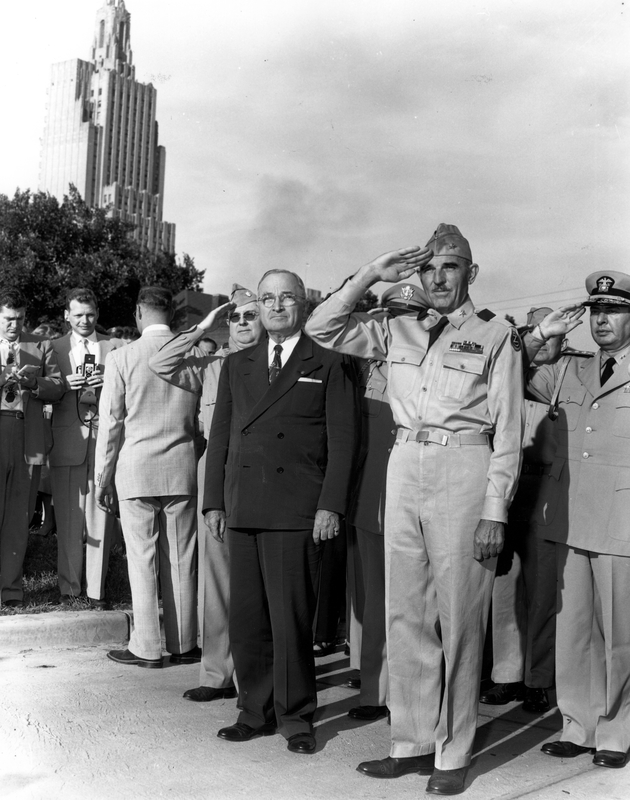
The following is a transcript of the speech he gave.
General Groves, Monsignor Tiernan, privates, sergeants, and colonels and generals: It is a pleasure indeed for me to be here this afternoon for this occasion. I have had some interest in the military since 1905—that is before most of you can remember. But, you know, in a country such as ours, the civilian background for the military is absolutely essential. I was a lieutenant in the National Guard of Missouri when the First World War started, after having been a private and a corporal and a sergeant. I never was a second lieutenant, much to my regret. When I was promoted from the rear rank to the front rank, and when I got my warrant as a corporal, I think that was the proudest day I ever spent in the military. I can’t very well appreciate this high honor that has come to me as President of the United States and the Commander in Chief of the Armed Forces. I try to exercise it as I would ideally hope a civilian would. You know, the original greatness of Rome depended upon her citizen soldiery. When Rome’s support became mercenary, and when the emperors controlled the military as military organizations to keep the Republic from functioning, then Rome was on the road to ruin and its downfall. In this day of ours we believe in the citizen as the support of the Government, and it is the duty of every citizen in times of emergency to support his Government in any place that the Government feels that is necessary. In the military we believe that there should be a trained civilian force to back up the regular army, the regular navy, and the regular air force, and to fill in those organizations at the proper time for the salvation of the Republic. That is the way we have handled it ever since the Republic was born. In I792 General Washington asked for a military training program and it looks as if in 1951, we may get it. That is really moving along! But it is a step in the right direction, and I know that it will be a great contributor in the salvation of this Republic. I want to see this Republic continue for all time, for this reason, that we are founded on a principle that no other country in the history of the world has been founded on. We are founded on the ideal that the Government is the servant of the individual, and that it is not the master of the individual. That is what we are fighting for now. That is what the cold war is for. That is what I was talking about in San Francisco on Monday night. I hope you will take that to heart; and I hope you young men, who are willing to spend some time studying the military in your off hours from your regular jobs, will continue to do just that. After the First World War, in 1920, I called together 75 Army, Navy, Air Force, and Marine former officers in World War I, at an eating place on Baltimore Avenue known as Morton’s. You couldn’t even find the place where it was now, unless you knew at that time where it was. We organized the first Reserve Officers Association of the United States. And from that Reserve association grew associations all over the country, and the organization of regiments, and companies, and battalion reserves. Now, the National Guard serves one purpose in the civilian army, and the Reserves another, but they are coordinated and they work together, as I hope all the military will from this time on.
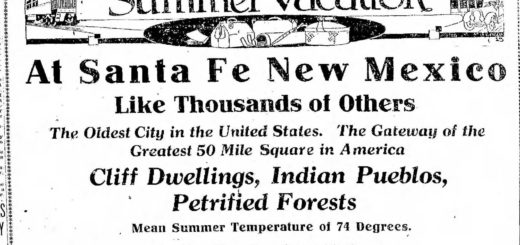
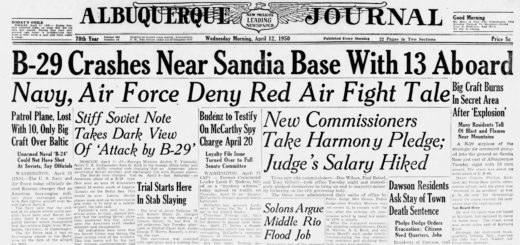
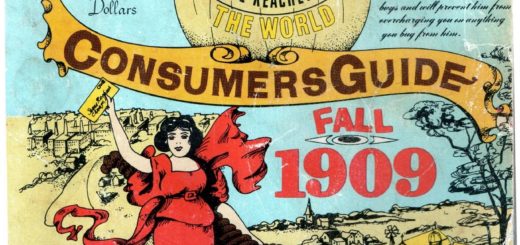
Recent Comments